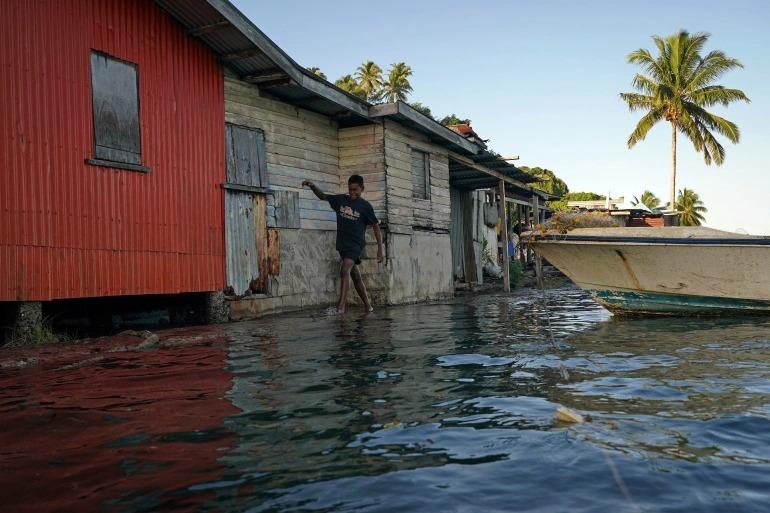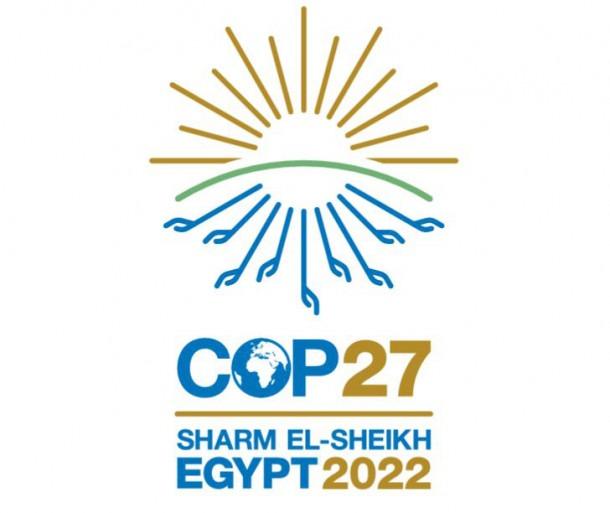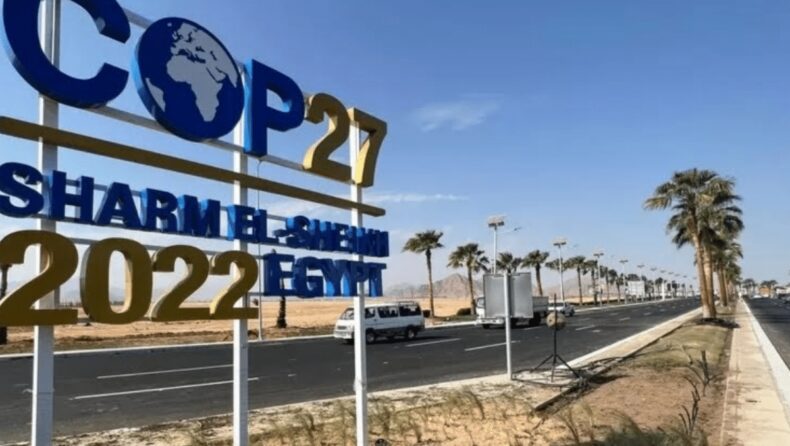Developing nations suffering from the drastic impacts of climate change will seek financial assistance from developed countries which account for a huge fraction of emissions.

The 27th Conference of the Parties (COP27) on climate change shall attempt to live up to its phrase — Together for Implementation — and advance prior commitments to limit global warming. This is in response to a year that has seen numerous severe natural catastrophes.
“The work ahead is immense. As immense as the climate impacts we are seeing around the world.”
United Nations Secretary-General Antonio Guterres’ statement, at a pre-COP meeting earlier this month.
“A third of Pakistan flooded. Europe’s hottest summer in 500 years. The Philippines hammered. The whole of Cuba is in blackout,” he listed, prompting rapid undertaking.
Antonio Guterres
The two-week summit this year, which commences on November 6 in Egypt, will work to strengthen and carry out the pledges made at the summit in Scotland last year, with the aim of limiting the rise in global temperature to 1.5 degrees Celsius (2.7 degrees Fahrenheit) to thwart off the most detrimental consequences of a warming planet.
To stop “dangerous human interference with the climate system,” the United Nations Framework Convention on Climate Change (UNFCCC), an international environmental treaty signed by 198 countries, came into force in 1994. The Conference of the Parties (COP) is the UNFCCC’s highest decision-making body.
Every year since 1995, the conference has brought signatory states together to discuss and decide how to work together to address climate change and its repercussions.
The Red Sea resort town of Sharm El-Sheikh is where Egypt is holding the summit this year. Since the COP22 event in Morocco in 2016, this is the first COP to take place in Africa.
At the World Leaders Summit on November 7-8, more than 100 leaders are anticipated to participate, giving the negotiations political momentum.
Many lobbyists for fossil fuels will band together in an effort to defend their sector from efforts to keep coal, oil, and gas in the ground.
Climate activist Greta Thunberg announced that she would be skipping the conference because it would be a chance for “greenwashing, lying, and cheating.”
The primary goal is to reduce greenhouse gas emissions by half by 2030 and to “net zero” by 2050 in order to adhere to the Intergovernmental Panel on Climate Change’s recommendation that global warming remains below 1.5°C (IPCC).
According to the Climate Action Tracker, COP26 in Scotland’s port city of Glasgow saw a flurry of pledges but ultimately left the globe on course to target 2.4°C (4.3°F). This year, government representatives will deal with some of the most important challenges preserving the world from reaching catastrophic warming.
The industrialised nations that account for the largest share of emissions and the ones that have not yet fulfilled their commitments to provide consistent funding for both adaptation and mitigation efforts will be the focus for the developing countries to achieve financial assistance as they experience the worst effects of climate change.
Looking at the agenda for COP27 scheduled in Egypt :

High expectations are placed on nations at COP27 to provide clear signals of progress in reducing greenhouse gas emissions, also known as mitigation implementation.
To urgently increase mitigation ambitions and implementation before 2030, parties are expected to create a “mitigation work programme.”
The official outcome of COP26, the Glasgow Climate Pact, demanded the bolstering of the objectives on trying to mitigate greenhouse emissions, known as Nationally Determined Contributions, as last year’s commitments on issues like phasing out coal power and reducing deforestation left the world on track to hit 2.4C of warming (NDCs).
At COP27, nations whose NDCs fell short of the 1.5°C objectives were anticipated to produce amended documents. Out of the 193 nations that pledged to increase their obligations, just 26 have so far implemented more ambitious plans.
The Glasgow Climate Pact asked industrialised nations to begin a two-year work programme on the global adaptation target and to at least double adaptation finance by 2025. (GGA). However, the promised assistance—including the annual payment of $100 billion that was supposed to be provided from 2020 to 2025—is not being delivered to developing nations.
Rich nations will be pushed to invest significantly more funds in aiding nations in the efforts to adapt and fulfil unfulfilled commitments.
This year, the main emphasis will probably be on “loss and damage,” often known as “climate reparations.”
The establishment of a structure that offers assistance for controlling loss and damage brought on by extreme weather has been a major demand from developing nations.
The subject, which has never been formally discussed at UN discussions, has been opposed by developed countries out of concern that it may lead to extensive litigation and compensation claims.
The Alliance of Small Island States (AOSIS) will offer a proposal for a “response fund” to aid those who have suffered loss and harm as a result of climate crises in rebuilding their lives. During COP27, when countries that provide aid are dealing with rising energy costs and allocating more of their funds to the humanitarian crisis in Ukraine, this contentious topic could become even more divisive.
The Santiago Network on Loss and Damage, which was established at COP25 to connect vulnerable developing nations with providers of technical help, knowledge, and resources, will also be given top priority in terms of operationalization, funding, and governance.
More than 450 private players in the finance industry were invited to modify their business models as part of the Glasgow Financial Alliance for Net Zero (GFANZ), which was founded at COP26 with the goal of accelerating the transition to a net zero economy. GFANZ is anticipated to put out specific strategies for lowering carbon emissions at COP27.
For the first time, nations came to an agreement to “scale down” coal output last year, but several have reneged on their commitments due to worries about potential shortages brought on by a reduction in energy supplies from Russia a chance that the COP stage will be used to present erroneous ideas for a fossil fuel-based solution to the energy dilemma.
Although it is necessary to cut gas output to accomplish climate targets, it may prove challenging to come to a consensus on this.













